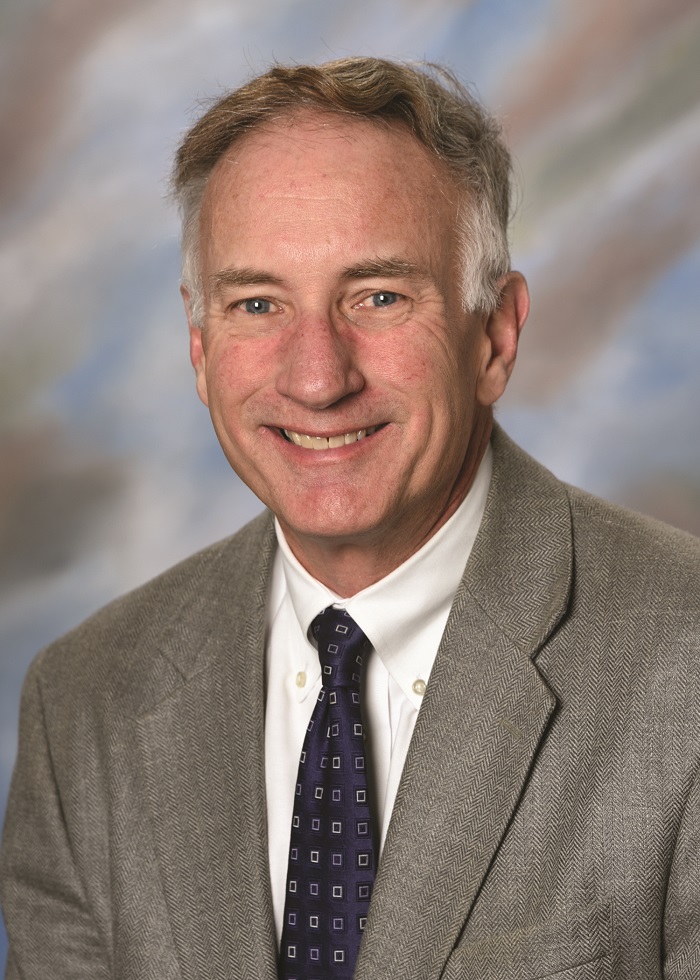Questions about lung cancer? Get answers with Dr. Craig Eisentrout!

We sat down with TriHealth pulmonary and critical care medicine physician Dr. Craig Eisentrout to learn a bit about lung cancer screenings and why they’re important. Get to know him and the facts below!
Who are you and what do you do at TriHealth?
Hi, I'm Dr. Craig Eisentrout. I've been a pulmonary physician for more than 35 years, originally at UC but have been at TriHealth since 1993. I'm extremely proud to be part of a multidisciplinary team that is dedicated to detecting, diagnosing, and treating lung cancer.
Outside of my work, when I'm not watching my grandchildren play sports, I enjoy woodworking, golf, cycling, as well as building and flying RC planes.
Who should be getting screened for lung cancer?
There are several risks for developing lung cancer, but the greatest and best recognized one is smoking.
There have been multiple large studies looking at the benefits of screening, and the results have led medical professionals to recommend annual screening CT scans for individuals between 50 and 80 years old who have smoked on average at least pack per day for 20 years (20 pack-years) and who have smoked within the past 15 years.
What are the benefits of getting screened regularly?
Most lung cancers develop fairly slowly and will start as very small abnormalities in the lung that a simple chest x-ray would not be able to see. Even for those who no longer smoke, there can still be risk – albeit less. The risk of developing lung cancer from smoking fades gradually over 15-20 years, so although it's great to quit, you still have to keep an eye out after stopping.
The main benefit of screening is that we can find cancers early enough to treat and cure. Lung cancer is the number one cancer killer of both men and women. If we wait until symptoms develop, the chance of curing it becomes very low – but if we detect the cancer early by screening, the chance of curing it is far higher.
How effective are lung cancer screenings?
At TriHealth, more than two-thirds of cancers found by screening are early stage, and due to this have a much better chance of being cured in general. We find lung cancer in one out of approximately every 60 screening exams we do. For reference, this is around ten times more effective than the average mammography or colonoscopy.
What happens during a lung cancer screening?
Screening should involve more than just a CT scan. The scan itself, however, is easy. It takes less than 5 minutes and does not require any medication or IV's.
The important part of a lung team is to make sure the scan is OK, and if it’s not, make sure that we plan whatever additional evaluation and testing is needed.
What do I do if the screening says I have cancer?
No screening scan can say for certain whether someone has cancer. However, it can indicate the need for further evaluation.
The vast majority of abnormalities seen on chest CTs in this region are benign, but that’s what our screening team is here for! The panel includes nurses, nurse navigators, thoracic surgeons and pulmonary physicians like myself that will make recommendations for further evaluation and help set up those next steps when necessary.
What are some common forms of treatment for lung cancer?
Treatment for lung cancer depends on the type of lung cancer and its stage. We are learning that lung cancer is not one disease, and there are different kinds of lung cancer – and even within each kind, there are variations depending on the genetics of the cancer.
Early-stage lung cancers (stages I and II) may be treated with surgery or localized radiation with a very high success rate. More advanced forms of cancer are usually treated with a combination of chemotherapy, with or without radiation.
The “game changer” for treatment has been the development of targeted treatments, which include techniques such as immunotherapy. These alternate treatments attack the cancer in a different way from chemotherapy. As they continue to be developed, they will hopefully continue improving the life expectancy, and in some cases the cure rate, for more advanced (stages III and IV) lung cancers.
What would you tell someone who is high-risk, but worried about what they might find if they get screened?
While the majority of lung cancers found by screening are often very treatable, those that are found by accident or when symptoms occur are usually not.
For those who are high-risk, avoiding getting screened can be like hearing the smoke alarm going off, but being too afraid to check out of fear there might really be a fire!
When it comes to lung cancer screenings, don’t wait until you have symptoms – visit the TriHealth Lung Program today and find out your risk level.
Related Articles
- Community & News
- Diabetes
- Patient Stories
- Service Line
- Community & News
- Patient Stories
- Service Line
- Women's Health